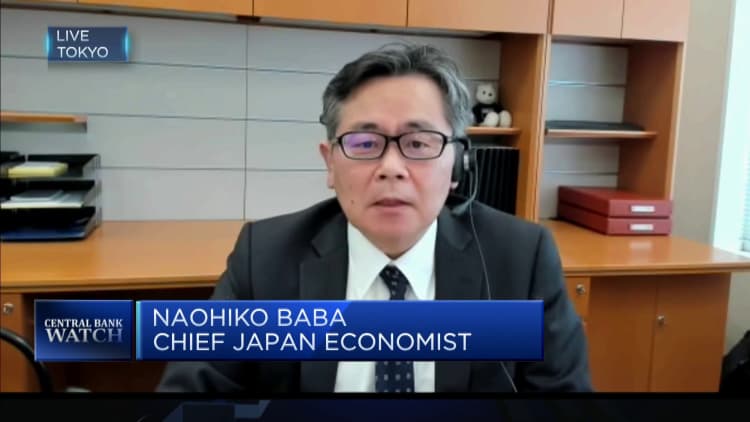Hong Kong stocks plunged to its lowest levels since April 2009, leading losses in the Asia-Pacific as the Bank of Japan left its benchmark interest rate unchanged.
The Hang Seng index in Hong Kong closed 3.66% lower at 14,863.06 after losing more than 4% earlier in the session, dragged by the Hang Seng Tech index falling 5.56%.
In Australia, the S&P/ASX 200 fell 0.87% to 6,785.70. The Nikkei 225 in Japan fell 0.88% to 27,105.20, while the Topix was 0.34% lower at 1,899.05. The Japanese yen initially maintained 146-levels after the Bank of Japan kept rates at ultra-low levels, but later weakened past 147.
South Korea's Kospi was 0.89% lower at 2,268.40. MSCI's broadest index of Asia-Pacific shares outside Japan fell 1.89%.
In mainland China, the Shanghai Composite was 2.25% lower at 2,915.93 and the Shenzhen Component shed 3.24% to close at 10,401.84.
Overnight in the U.S., the Dow Jones Industrial Average rose 194.17 points, or 0.6%, to end at 32,033.28 in its fifth straight positive session. The S&P 500 closed 0.6% lower at 3,807.30, and the Nasdaq Composite lost 1.6% to 10,792.68.


